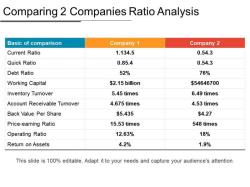How fixed indexed annuities are guaranteed?
Fixed indexed annuities (FIAs) are financial products that offer a combination of features, including the potential for growth tied to a stock market index while providing a guaranteed minimum return. Here's an explanation of the guarantees associated with fixed indexed annuities:
Principal Protection:
- One of the primary guarantees of fixed indexed annuities is the protection of your principal investment. This means that the initial amount you invest is protected from market downturns, regardless of how the chosen stock market index performs.
Minimum Interest Rate:
- FIAs typically offer a guaranteed minimum interest rate, which is often referred to as the "floor." Even if the stock market index to which the annuity is linked performs poorly, your account is guaranteed to grow by at least this minimum interest rate. The minimum rate is set in the annuity contract.
Participation Rate:
- Fixed indexed annuities may not provide a dollar-for-dollar return based on the index's performance. Instead, they use a participation rate, which determines how much of the index's gains you will receive. For example, if the participation rate is 80%, and the index gains 10%, your account would be credited with an 8% return.
Caps and Spreads:
- Some FIAs include caps or spreads, which limit the amount of potential growth you can earn. A cap sets a maximum limit on the return you can receive, while a spread subtracts a certain percentage from any positive index returns. These features help insurance companies manage their risk and provide guarantees.
Fixed Interest Option:
- In addition to the indexed options, many FIAs offer a fixed interest option, which provides a guaranteed fixed interest rate. This rate is typically lower than potential returns linked to an index but offers stability and predictability.
Guaranteed Income Options:
- Some FIAs offer guaranteed income riders, which provide a predictable stream of income during retirement. These riders often come with a specific formula for determining the income, and they can offer protection against market downturns.
Crediting Methods:
- FIAs offer various crediting methods to determine how gains from the selected index are calculated. Common methods include point-to-point, monthly averaging, annual reset, and more. The choice of crediting method can impact your potential returns and guarantees.
Issuer's Financial Strength:
- The guarantees associated with fixed indexed annuities are only as strong as the financial stability of the insurance company that issues the annuity. It's essential to choose an issuer with a strong financial rating to ensure they can meet their obligations.
It's important to note that fixed indexed annuities are complex financial products, and the specific terms and conditions can vary between contracts and insurance companies. Before purchasing an FIA, it's crucial to thoroughly review the annuity contract, understand the guarantees and limitations, and consult with a financial advisor or insurance professional to ensure it aligns with your financial goals and risk tolerance.
Additionally, while FIAs offer principal protection and guaranteed minimum interest rates, they may have limitations on liquidity and potential fees, so it's essential to consider these factors when making your investment decision.
How are fixed indexed annuities guaranteed, and what do they offer?
Fixed indexed annuities are guaranteed by the issuing insurance company. This means that the insurance company promises to pay you a certain amount of money, regardless of how the stock market performs.
Fixed indexed annuities offer a number of benefits, including:
- Growth potential: Fixed indexed annuities have the potential to grow over time, although the growth is capped.
- Downside protection: Fixed indexed annuities offer some downside protection, meaning that you will never lose more than your initial investment.
- Guarantees: Fixed indexed annuities offer a number of guarantees, including a guaranteed minimum interest rate and a guaranteed lifetime income stream.
What is the role of the stock market in fixed indexed annuities' guarantees?
The stock market plays a role in fixed indexed annuities' guarantees by providing the benchmark for the annuity's growth potential. Fixed indexed annuities are typically linked to a stock market index, such as the S&P 500. When the index rises, the annuity's value increases, but the increase is capped. When the index falls, the annuity's value stays the same or decreases slightly.
Can you explain the concept of a participation rate in these annuities?
The participation rate in a fixed indexed annuity is the percentage of the index's gain that the annuity will participate in. For example, an annuity with a participation rate of 80% will participate in 80% of the index's gain. This means that if the index rises by 10%, the annuity's value will increase by 8%.
Are there limitations or risks associated with fixed indexed annuities?
Yes, there are a few limitations and risks associated with fixed indexed annuities:
- Caps: Fixed indexed annuities have caps on their growth potential. This means that you cannot earn more than a certain amount of interest each year, even if the stock market performs very well.
- Fees: Fixed indexed annuities typically have fees associated with them. These fees can reduce your returns and make the annuity less attractive.
- Surrender charges: Fixed indexed annuities typically have surrender charges, which are fees that you must pay if you withdraw money from the annuity before a certain period of time has elapsed.
- Credit risk: Fixed indexed annuities are subject to the credit risk of the issuing insurance company. This means that if the insurance company goes bankrupt, you may lose your investment.
How do fixed indexed annuities differ from other types of annuities in terms of guarantees?
Fixed indexed annuities offer a number of guarantees that other types of annuities do not. For example, fixed indexed annuities offer a guaranteed minimum interest rate and a guaranteed lifetime income stream. Other types of annuities, such as variable annuities and fixed annuities, do not offer these guarantees.
Variable annuities invest in the stock market and offer the potential for higher returns, but they also carry more risk. If the stock market performs poorly, you could lose money in a variable annuity.
Fixed annuities offer a guaranteed interest rate, but the interest rate is typically lower than what you could earn in other types of investments, such as savings accounts or certificates of deposit.
Fixed indexed annuities offer a balance between the potential for growth and the security of guarantees. They are a good option for investors who are looking for a conservative investment with the potential to grow over time.
It is important to note that all investments carry some degree of risk. Fixed indexed annuities are no exception. Before investing in a fixed indexed annuity, you should carefully consider your investment goals and risk tolerance. You should also compare different annuities to find the one that is right for you.












